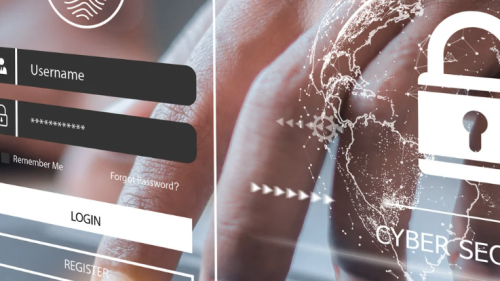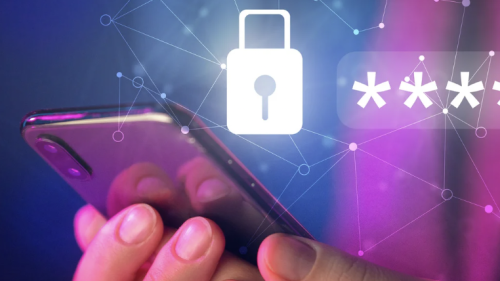
Cybercriminology
Kent State University’s Bachelor of Science in Cybercriminology is a fully online program that combines criminology and cybersecurity to prepare students for careers in digital forensics, cybercrime investigation, and information security. This degree equips graduates with the knowledge to combat cyber threats and investigate criminal activity in the digital realm.
Bachelor of Science in Cybercriminology Degree Program Overview
The Bachelor of Science degree in Cybercriminology incorporates the understanding of computer systems and networks with criminal behavior and processes in identifying, preventing and investigating cyber-related threats and crimes. Students are involved with project-based research and other experiential learning opportunities focused on technology and the legal, ethical and criminology aspects of modern crime, making them well prepared for work in a myriad of professional positions ranging from security/intelligence analysts and investigators to network and security administrators.
Program Learning Outcomes
Graduates of this program will be able to:
- Describe the scope of cyber threats and crimes.
- Apply criminological theories to the commission of computer-related crimes.
- Apply a solid foundational grounding with digital technologies to digital investigations to combat cybercrime or threats.
- Compare and contrast digital and traditional evidence as it relates to investigation, processing and use in prosecution.
- Define and apply policies that include privacy, regulatory, legal and ethical considerations as they relate to responding to and/or investigating cyber threats.
Bachelor of Science in Cybercriminology Degree Admissions Requirements
The university affirmatively strives to provide educational opportunities and access to students with varied backgrounds, those with special talents and adult students.
First-Year Students on the Kent Campus: First-year admission policy on the Kent Campus is selective. Admission decisions are based upon cumulative grade point average, strength of high school college preparatory curriculum and grade trends. Students not admissible to the Kent Campus may be administratively referred to one of the seven regional campuses to begin their college coursework. For more information, visit the admissions website for first-year students.
First-Year Students on the Regional Campuses: First-year admission to Kent State’s campuses at Ashtabula, East Liverpool, Geauga, Salem, Stark, Trumbull and Tuscarawas, as well as the Twinsburg Academic Center, is open to anyone with a high school diploma or its equivalent. For more information on admissions, contact the Regional Campuses admissions offices.
International Students: All international students must provide proof of proficiency of the English language (unless they meet specific exceptions) through the submission of an English language proficiency test score or by completing English language classes at Kent State’s English as a Second Language Center before entering their program. For more information, visit the admissions website for international students.
Former Students: Former Kent State students who have not attended another institution since Kent State and were not academically dismissed will complete the re-enrollment process through the Financial, Billing and Enrollment Center. Former students who attended another college or university since leaving Kent State must apply for admissions as a transfer or post-undergraduate student.
Transfer Students: Students who attended an educational institution after graduating from high school or earning their GED must apply as transfer students. For more information, visit the admissions website for transfer students.
Admission policies for undergraduate students may be found in the University Catalog’s Academic Policies.
Students may be required to meet certain criteria to progress in their program. Any progression requirements will be listed on the program’s Coursework tab
What is the online Bachelor of Science in Cybercriminology program at Kent State University?
The online Bachelor of Science in Cybercriminology at Kent State University is a fully online program that integrates the study of computer systems and networks with an understanding of criminal behavior and processes. The program focuses on identifying, preventing, and investigating cyber-related threats and crimes.
What is Cybercriminology?
Cybercriminology is an interdisciplinary field that examines crime and criminal behavior in digital environments. It blends principles from criminology, criminal justice, cybersecurity, and digital investigation to help students understand how technology influences crime, how cyber threats are investigated, and how legal and ethical frameworks apply in online spaces.
Is this degree fully online?
Yes. Kent State’s Bachelor of Science in Cybercriminology is delivered 100% online, allowing students to complete coursework remotely while balancing work, family, and other commitments.
How long does it take to complete the degree?
As a standard four-year bachelor’s degree, most full-time students complete the program in about four years. Part-time, transfer, and military students may take longer depending on their course load and transfer credits. Academic advising helps students plan an individual timeline.
Can I transfer credits into this program?
Yes. Kent State accepts transfer credits from regionally accredited institutions. Advisors work with students to evaluate prior coursework and help determine how credits might apply to degree requirements.
What courses are included in the curriculum?
The curriculum includes a blend of criminology and information technology courses, such as:
- Criminology Courses: Introduction to Justice Studies, Crime and Technology, Criminal Law, Criminal Procedures and Evidence, Criminology, Intelligence and National Security, Homeland Security, Terrorism and Counterterrorism, Information and Cyber Security.
- Information Technology Courses: Visual Basic Programming, Introduction to Operating Systems and Networking Technology, Computer Assembly and Configuration, Applied Security Essentials, Network Setup and Configuration, Python Programming in Information Technology, Computer Forensics, Network Forensics, Social Media and Mobile Device Forensics, Network Security Fundamentals, Advanced Routing and Switching, Network Security and Firewalls.
What kinds of careers can I pursue with a Cybercriminology degree?
Graduates are prepared for careers that intersect technology and justice, including roles such as cybercrime analyst, digital forensics specialist, intelligence analyst, cybersecurity support technician, network security assistant, and other positions in both public- and private-sector security environments.
Do I need prior IT or computer science experience to enroll?
No prior IT experience is required. The curriculum is designed to introduce foundational concepts and build skills gradually. Students learn both technical and analytical aspects of cybercrime and justice, making the program accessible to first-time college students, career changers, and those without a tech background.
Are there any experiential learning opportunities in the program?
Yes, students engage in project-based research and other experiential learning opportunities in technology, as well as the legal, ethical, and criminological aspects of modern crime, preparing them for various professional positions.
Will this degree prepare me for cybersecurity certifications?
While the degree itself does not grant certification, many courses build foundational knowledge useful for industry certifications such as CompTIA Security+, Certified Ethical Hacker (CEH), and others. Students are encouraged to pursue certifications alongside coursework to expand job readiness.
How is this degree different from a traditional criminal justice or cybersecurity degree?
Cybercriminology uniquely combines criminology and criminal justice theory with technical concepts related to cybercrime and digital investigation. While criminal justice programs focus broadly on justice systems and cybersecurity programs focus on protecting systems, cybercriminology bridges both — focusing on why and how crime happens online as well as how to analyze it.
Program Courses
Program Requirements
| Code | Title | Credit Hours |
|---|---|---|
| Major Requirements (courses count in major GPA) | ||
| CRIM 12000 | INTRODUCTION TO JUSTICE STUDIES | 3 |
| CRIM 13000 | CRIME AND TECHNOLOGY | 3 |
| CRIM 33200 | CRIMINAL LAW | 3 |
| CRIM 34200 | CRIMINAL PROCEDURES AND EVIDENCE | 3 |
| CRIM 36702 | CRIMINOLOGY | 3 |
| CRIM 46800 | INTELLIGENCE AND NATIONAL SECURITY | 3 |
| CRIM 46801 | HOMELAND SECURITY | 3 |
| CRIM 46802 | TERRORISM AND COUNTERTERRORISM | 3 |
| CRIM 46803 | INFORMATION AND CYBER SECURITY | 3 |
| IT 11005 | INTRODUCTION TO OPERATING SYSTEMS AND NETWORKING TECHNOLOGY | 3 |
| IT 11009 | COMPUTER ASSEMBLY AND CONFIGURATION | 3 |
| IT 13000 | APPLIED SECURITY ESSENTIALS | 3 |
| IT 15000 | FUNDAMENTALS OF PROGRAMMING FOR INFORMATION TECHNOLOGY | 3 |
| IT 21002 | NETWORK SETUP AND CONFIGURATION | 3 |
| IT 21006 | DATABASE PROGRAMMING | 3 |
| IT 21100 | LOCAL AREA NETWORK TROUBLESHOOTING | 3 |
| IT 21110 | NETWORK ROUTING AND SWITCHING | 3 |
| IT 30000 | PYTHON PROGRAMMING IN INFORMATION TECHNOLOGY | 3 |
| IT 36320 | COMPUTER FORENSICS | 3 |
| IT 36321 | NETWORK FORENSICS | 3 |
| IT 36322 | SOCIAL MEDIA AND MOBILE DEVICE FORENSICS | 3 |
| IT 46320 | CLOUD FORENSICS | |
| IT 36330 | NETWORK SECURITY FUNDAMENTALS | 3 |
| IT 36331 | ADVANCED ROUTING AND SWITCHING | 3 |
| IT 36355 | COMMAND LINE UTILITIES | 3 |
| IT 46331 | NETWORK SECURITY AND FIREWALLS | 3 |
| SOC 32210 | RESEARCHING SOCIETY (ELR) (WIC) 1 | 3 |
| TAS 47999 | TECHNICAL AND APPLIED STUDIES CAPSTONE (ELR) (WIC) 1 | 3 |
| Additional Requirements (courses do not count in major GPA) | ||
| SOC 12050 | INTRODUCTION TO SOCIOLOGY (DIVD) (KSS) | 3 |
| UC 10001 | FLASHES 101 | 1 |
| Kent Core Composition | 6 | |
| Kent Core Mathematics and Critical Reasoning 2 | 3 | |
| Kent Core Humanities and Fine Arts (minimum one course from each) | 9 | |
| Kent Core Social Sciences (must be from two disciplines) | 3 | |
| Kent Core Basic Sciences (must include one laboratory) | 6-7 | |
| Kent Core Additional | 6 | |
| General Elective (total credit hours depends on earning 120 credit hours, including 39 upper-division credit hours) | 2 | |
| Minimum Total Credit Hours: | 120 | |
1A minimum C grade must be earned to fulfill the writing-intensive requirement.
2Students are strongly advised to take MATH 10041 or MATH 10051 to fulfill the Kent Core Mathematics and Critical Reasoning requirement.
Bachelor of Science in Cybercriminology Degree Program Tuition and Fees
Ohio Residents
| Per Credit Hour | Per 3-Credit Course | Approximate Tuition Cost |
| $610.75 | $1,832.25 | $53,700 full-time1 |
Non-Ohio Residents
| Per Credit Hour | Per 3-Credit Course | Approximate Tuition Cost |
| $620.75 | $1862.25 | $55,000 full-time2 |
1The flat-rate semester fee of $6,722.60 applies to full-time Ohio resident undergraduate students taking between 12-18 credit hours per semester. This program is calculated at 8 semesters. For part-time semesters: The $610.75 per-credit-hour tuition rate applies to part-time Ohio resident undergraduate students taking fewer than 12 credit hours per semester.
2The flat-rate semester fee of $6,722.60 applies to full-time non-Ohio resident undergraduate students enrolled in a fully online degree program and taking between 12-18 credit hours, PLUS a surcharge of $10 per credit hour of actual credits taken (between 12-18 semester credits or $120-$180). This program is calculated at 8 (15 hour) semesters. For part-time semesters: The $620.75 per-credit-hour tuition rate applies to part-time non-Ohio resident undergraduate students enrolled in a fully online degree program and taking fewer than 12 credit hours per semester, PLUS a surcharge of $10 per credit hour.
*The tuition listed above is for the Kent campus. The Bachelor of Science in Cybercriminology program is offered at both the Kent campus and one or more Regional campus. The tuition rate will be assessed individually for each campus, however, the individual tuition assessments added together will not exceed the Kent campus flat rate capped at between 12-18 credits. If the tuition added together for each campus does exceed that amount, then the student account will be adjusted. Please visit the Admissions website for information regarding Regional campus tuition.
- An additional Distance Learning fee for all students enrolled in a distance learning course is $15 per credit hour. Program tuition and costs are estimated and subject to change.
- Actual tuition costs will vary based on a student’s chosen academic plan. The full cost of attendance consists of tuition and fees, and when applicable, food, housing, books, course materials, supplies and equipment, transportation and personal expenses for the enrolled terms. Other expenses not included in tuition and fees totals can be found on the Kent State University cost of attendance web page.
- For a complete listing of tuition rates for approved online programs, please contact Kent State’s Financial, Billing & Enrollment Center at 330-672-6000 or via our website Contact Us link.
Bachelor of Science in Cybercriminology Degree Careers
- 10.4% much faster than the average
- 461,000 number of jobs
- $151,150 potential earnings
- 6.4% faster than the average
- 195,100 number of jobs
- $65,450 potential earnings
- 9.7% much faster than the average
- 132,500 number of jobs
- $98,860 potential earnings
- 1.1% slower than the average
- 113,500 number of jobs
- $86,940 potential earnings
- 31.2% much faster than the average
- 131,000 number of jobs
- $103,590 potential earnings
- 4.3% about as fast as the average
- 373,900 number of jobs
- $84,810 potential earnings
- Computer forensic analysts
- Cybercrime investigators
- Digital forensic investigators
- District attorneyâs office investigators
- Forensic analysts
- Incident managers
- Law enforcement agency (local, state, federal)
- Malware analysts
- Penetration testers
- Security architects
- State department
Notice: Career Information Source
* Source of occupation titles and labor data comes from the U.S. Bureau of Labor Statistics’ Occupational Outlook Handbook. Data comprises projected percent change in employment over the next 10 years; nation-wide employment numbers; and the yearly median wage at which half of the workers in the occupation earned more than that amount and half earned less.







